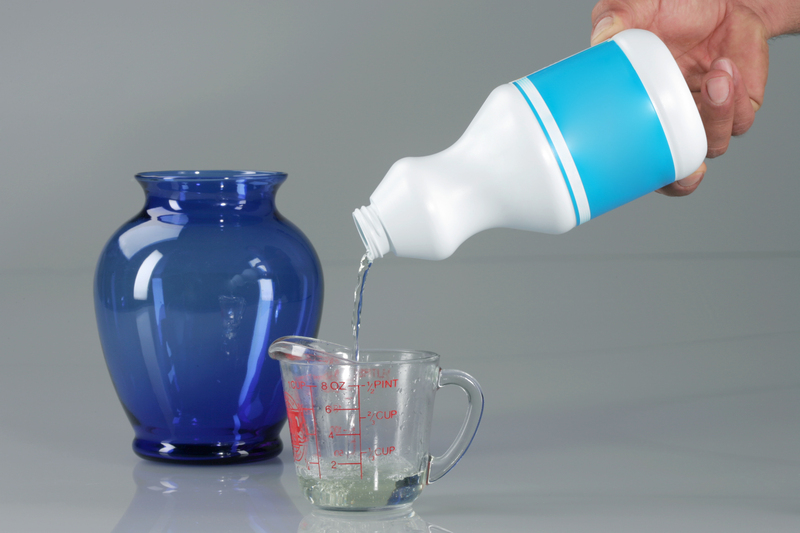Best Lemon Cleaning Methods
Posted on 18/08/2024
Lemons are not just for culinary delights and refreshing beverages; they are also an astonishingly effective cleaning agent. Known for their acidic properties and fresh scent, lemons can tackle grime, grease, and bacteria in ways that many commercial cleaners can't. If you're looking to switch to natural cleaning solutions that are eco-friendly, non-toxic, and cost-effective, learning the best lemon cleaning methods is a fantastic start.
Lemon Cleaning Method #1: Kitchen Surfaces
One of the best places to utilize lemons for cleaning is in the kitchen. Whether it's your countertops, sink, or cutting boards, lemons can get the job done.
How to Clean Kitchen Surfaces with Lemon:
1. Countertops: Squeeze lemon juice directly onto stains, sprinkle a little baking soda over it, and scrub with a cloth or sponge. Rinse with water to remove any residue.
2. Sinks: Rub half a lemon over the sink's surface, focusing on stains and areas with soap scum. Rinse thoroughly with warm water.
3. Cutting Boards: Sprinkle coarse salt over a wooden cutting board. Take half a lemon and scrub in a circular motion. Rinse well and let it air dry.

Lemon Cleaning Method #2: Removing Hard Water Stains
Hard water stains are stubborn and unsightly, but lemons can tackle them with ease, especially in bathrooms.
How to Remove Hard Water Stains with Lemon:
1. Faucets and Showerheads: Apply lemon juice to a cloth and scrub the faucet or showerhead until the stains disappear.
2. Glass Shower Doors: Rub half a lemon over the glass surface to remove water spots. Rinse with warm water and dry with a clean cloth for a streak-free finish.
Lemon Cleaning Method #3: Freshening Up the Fridge
Refrigerators can harbor unpleasant smells, often caused by forgotten leftovers or spills. Lemons can neutralize these odors effectively.
How to Freshen Up the Fridge with Lemon:
1. Deodorizing: Soak a few cotton balls in lemon juice and place them in an open container. Keep this at the back of your fridge to keep it smelling fresh.
2. Cleaning: Dip a sponge in lemon juice and water, then wipe down the shelves and walls of the fridge. Rinse with a damp cloth.
Lemon Cleaning Method #4: Polishing Metal and Cutlery
Metals, such as brass, copper, and silver, can tarnish and lose their luster over time. Lemons offer a natural way to bring back their shine.
How to Polish Metal and Cutlery with Lemon:
1. Brass or Copper: Create a paste using lemon juice and salt. Apply this paste to the metal surface and rub gently. Rinse with warm water and dry with a soft cloth.
2. Silver Cutlery: Soak a cloth in lemon juice, then wipe each piece of silverware to remove tarnish and bring back shine.
Lemon Cleaning Method #5: Carpet Stain Removal
Spills and pet accidents can leave stubborn stains on your carpets. Lemons, combined with other natural ingredients, can help lift these stains.
How to Remove Carpet Stains with Lemon:
1. Blot the stain with a cloth to absorb as much liquid as possible.
2. Mix equal parts lemon juice and water in a spray bottle and apply it to the stain.
3. Sprinkle baking soda over the moistened area and let it sit for about 15 minutes.
4. Vacuum the baking soda and wipe the area with a damp cloth.
Pros and Cons of Using Lemons for Cleaning
Like any cleaning method, using lemons comes with its pros and cons.
Pros:
- Eco-Friendly: Lemons are a natural, biodegradable resource.
- Non-Toxic: Safe to use around children and pets.
- Multi-Purpose: Effective on a wide range of surfaces and materials.
- Pleasant Scent: Leaves your home smelling fresh and clean.
Cons:
- Can Be Abrasive: Too much lemon juice can potentially damage delicate surfaces.
- Not Suitable for All Surfaces: May not be ideal for porous surfaces like marble or unsealed wood.
- Requires Effort: Manual scrubbing is often necessary for best results.
Tips for Optimal Lemon Cleaning
- Always test a small, inconspicuous area before applying lemon juice to a larger surface.
- Combine lemon juice with other natural cleaners like baking soda for enhanced cleaning power.
- Use fresh lemons for the best results; bottled lemon juice may contain additives.
- Always rinse surfaces with water after cleaning to prevent sticky residues.

Takeaways
Lemons are a versatile and powerful natural cleaning agent. From disinfecting kitchen surfaces to polishing metal and freshening up your fridge, lemons can tackle a variety of cleaning tasks. They are an eco-friendly and cost-effective alternative to chemical-based cleaners, with the added benefit of a fresh and pleasant aroma.
Conclusion
Incorporating lemons into your cleaning routine can provide a wide range of benefits. These methods are simple, cost-effective, and environmentally friendly, making them an excellent choice for those who are looking for natural cleaning solutions. While there are some minor drawbacks, the pros far outweigh the cons, making lemons a go-to for many household cleaning needs.
Latest Posts
Tips for Safely Cleaning Car Leather Seats
Effective Carpet Stain Removal
Preserving the Elegance of Velvet Curtains Through Washing
A Comprehensive Guide to Ridding Your Toilet of Unsightly Limescale







